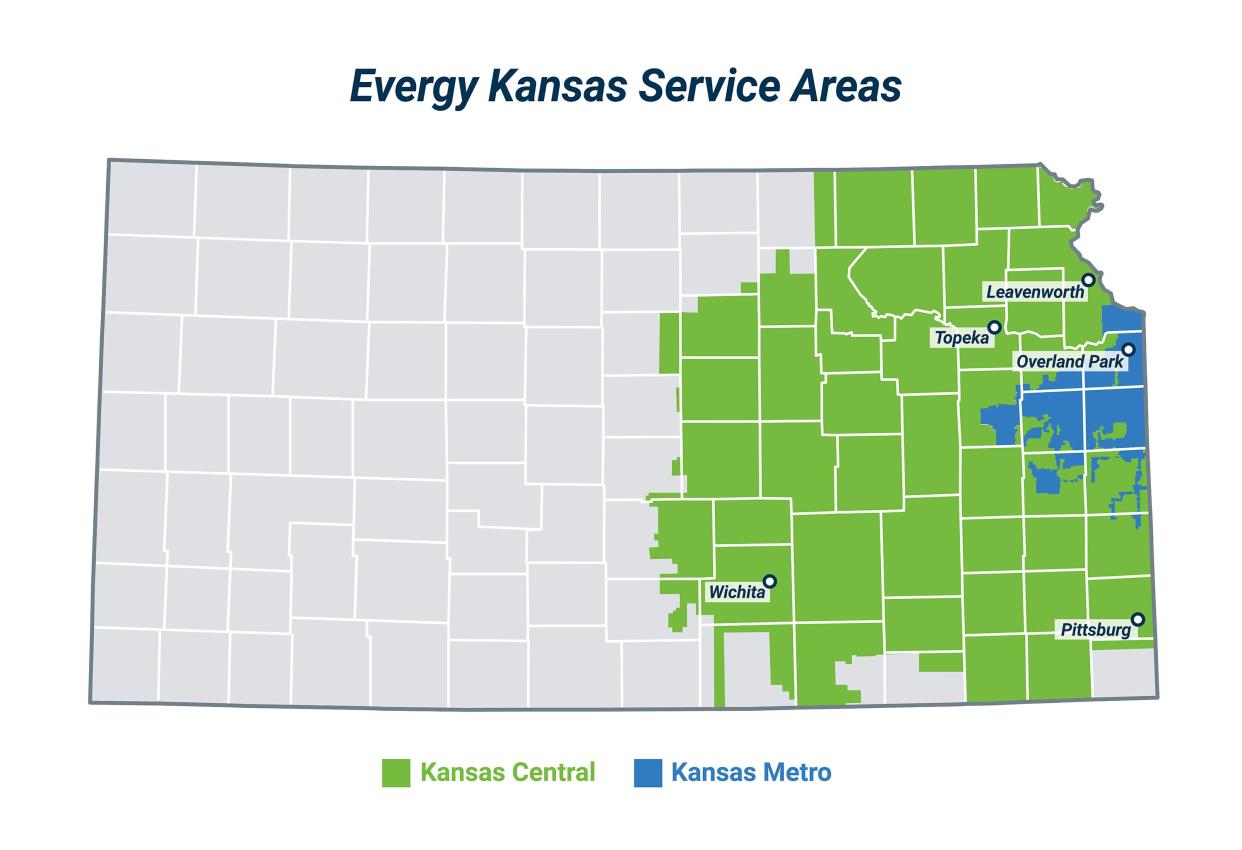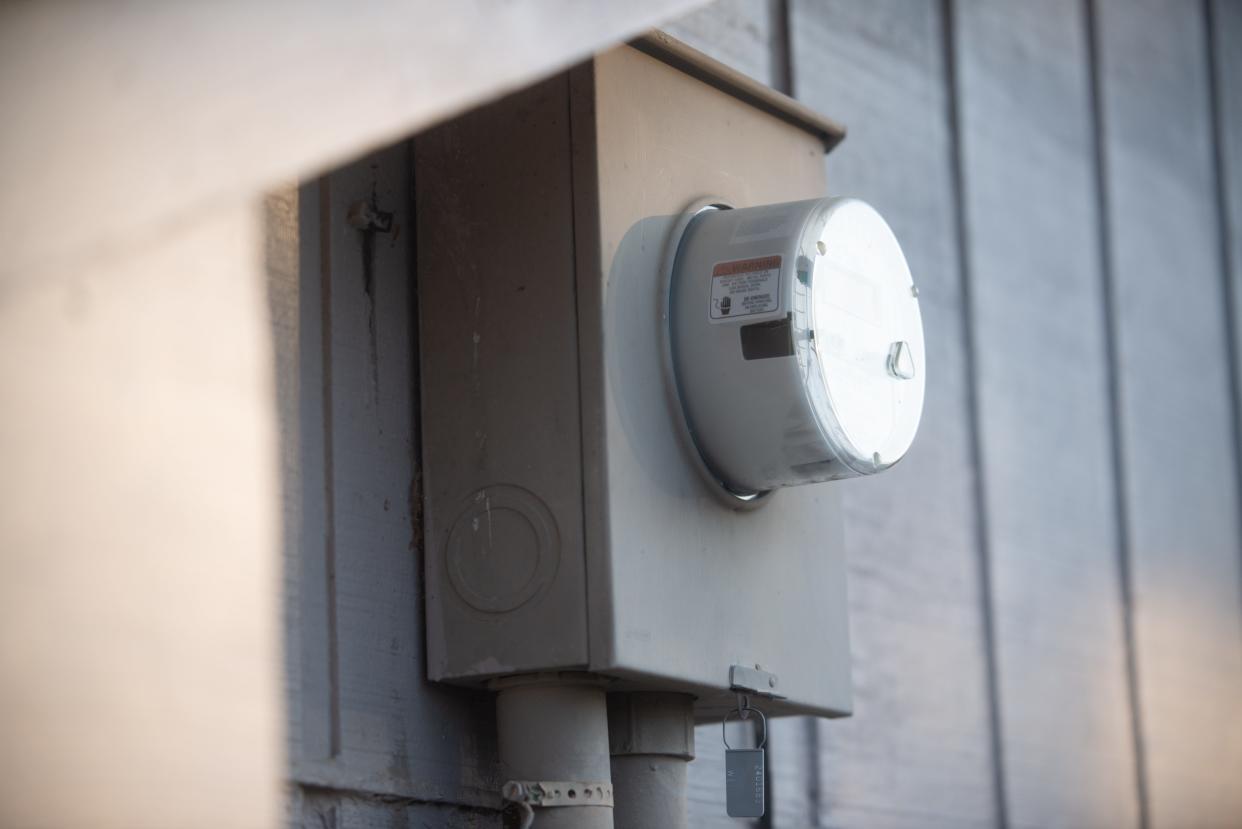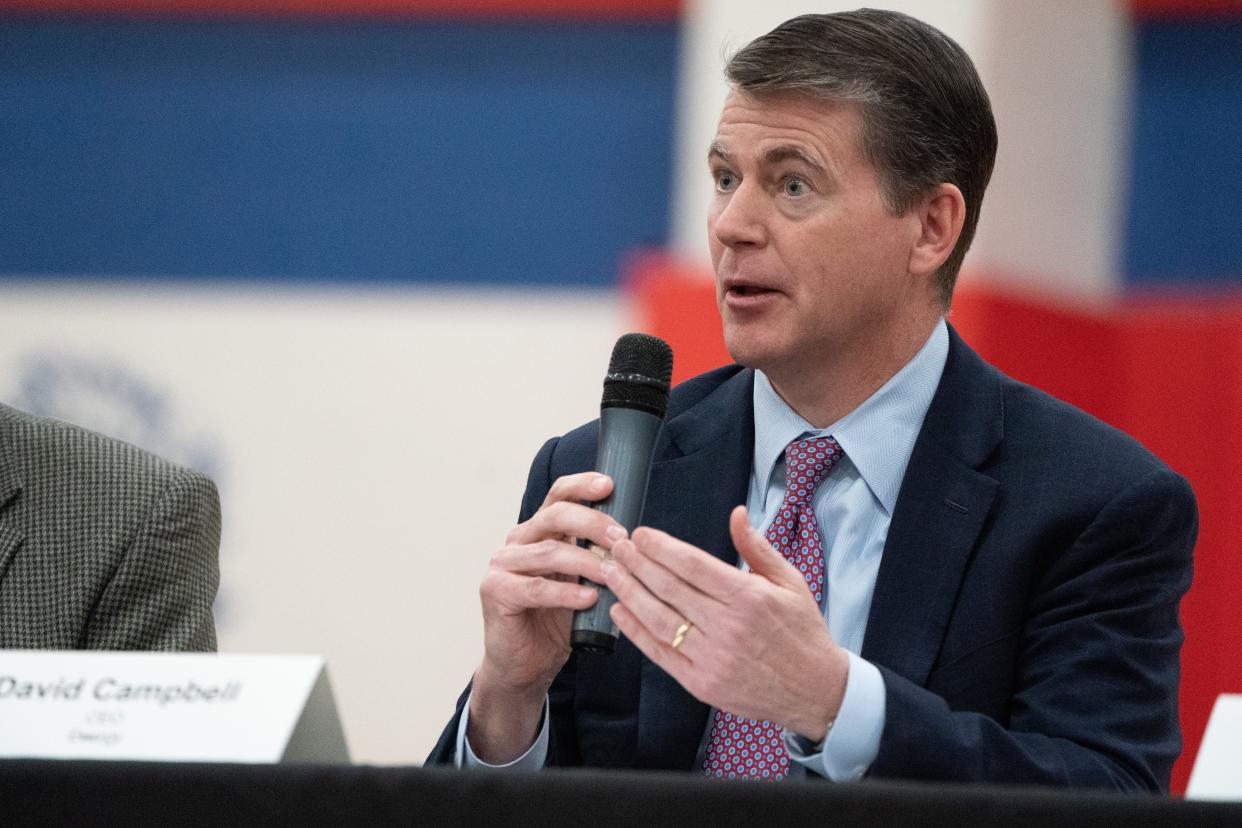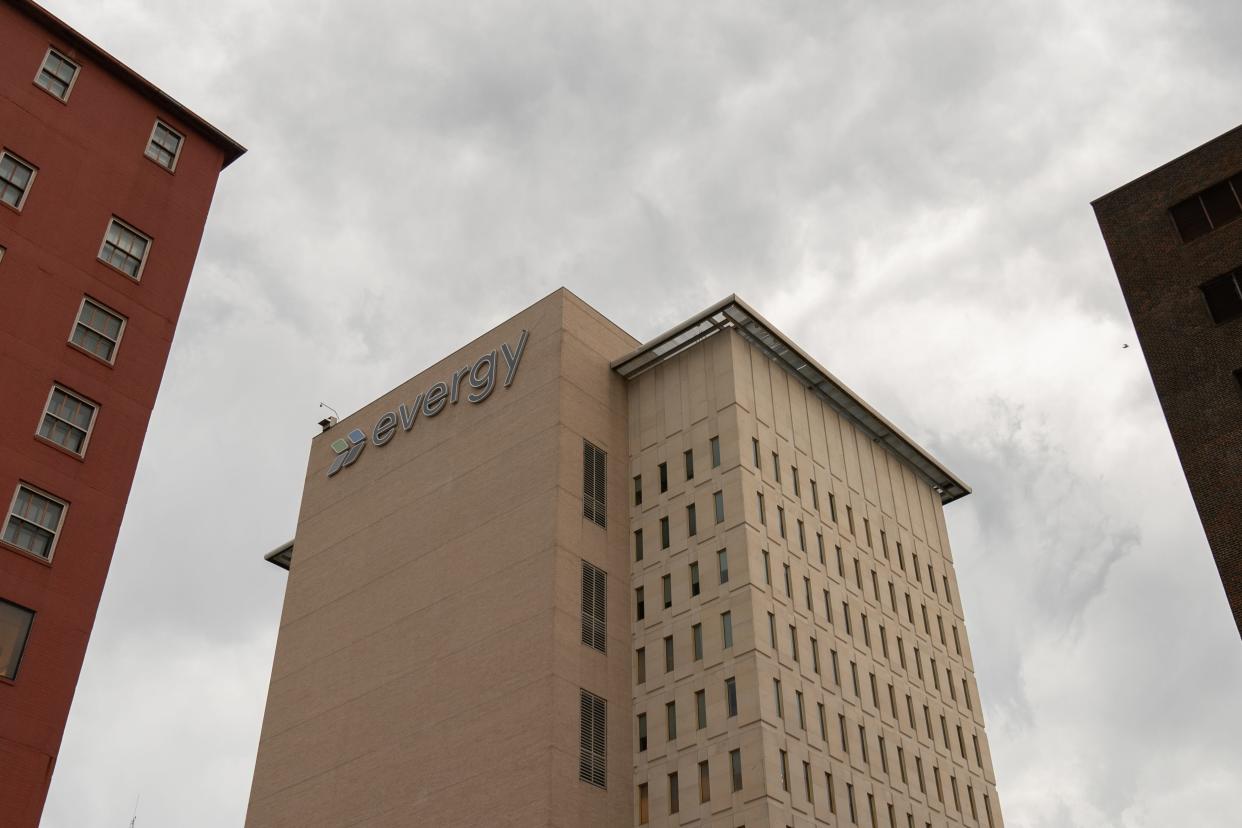Evergy wants to increase your electric rates. Here's what to know and how to speak out
Evergy has asked the state's utility regulators to allow the monopoly to raise how much you pay each month in the base rate of your electric bill.
Here's what to know:
How will the Evergy rate case affect me?
How much more you will pay depends on where you live, which of the 13 or so classes you are in, which of the approximately 28 rates you pay and other factors.
If you live in the Evergy Kansas Central region, which covers most of eastern and central Kansas, you will likely see a substantially larger rate increase than if you live in the Evergy Kansas Metro region, which includes the Kansas City area.
Evergy had said in a news release that an average residential customer in the central region would pay an extra $14.24 per month, while the metro region's increase would be $3.47. While those are the net increases, the base rate increases would actually be higher.
The central region has higher costs, explained Darrin Ives, Evergy's vice president for regulatory affairs, because the rural areas require more investment to serve the dispersed customer base.
Evergy serves about 1 million customers in the eastern half of Kansas, with nearly three-quarters of those in the company's central region.

Evergy's required filings show the central region's approximately 626,000 customers in the residential service class would pay a combined $142 million more per year in base rates. That's an average of $19 more per month, or a 25% increase.
If your average monthly electric bill shows your home uses more than 868 kilowatt hours, then you are considered above average and would be paying more than $19 extra a month.
Most small commercial and industrial businesses would fall under the small general service class. Those approximately 88,000 customers in the central region would see a 19% increase, paying an average of $46 more per month in base rates.
Churches in the restricted institutions class, which has about 300 customers, would see their average monthly bill's base rate increase 25% to $75. Schools in the educational service class, which has approximately 1,600 customers, would see a 25% increase, averaging $458.
The central region's one customer in the large tire manufacturer class — presumably Topeka's Goodyear plant — currently pays $4.5 million per year in base rates. That would increase to $5.5 million, or an extra $83,000 a month.
The largest average increase is from the three customers with special contracts, which records indicate includes Spirit AeroSystems and Occidental Chemical Corporation. Their average monthly bills will go up $229,000.
More: Evergy wants to charge you $14 more a month in raising $218 million from Kansas customers
Why now?

The 2018 merger that formed Evergy came with a condition that the company could not ask for an increase to the base rate for five years. That moratorium is now expiring.
The company compared its rates to inflation, which increased 20% since 2017. Other regional states saw electric utility rates increase 13%. Meanwhile, Evergy's overall rates increased 0.1% in Kansas, while residential rates decreased 2.5%.
Now, the central region is in line for a 10% increase with a 2% increase in the metro region in overall rates.
"From residential customers to large businesses, we know how important it is to keep electricity affordable especially in the wake of record inflation," said Evergy President and CEO David Campbell, touting Evergy's previously stable prices and crediting $1 billion in cost savings from the merger.
Why does Evergy need more money?
Evergy's current base rates bring in about $1.8 billion in annual revenue. The proposed increases would bring in $304 million more per year in base rates, but because of offsetting reductions, their net revenue would increase $218 million.
"We are seeking to recover investments made to improve the electric grid and build a smarter, more reliable energy future for our Kansas customers," Campbell said.
Campbell said rate the proposed rate increases would have been even higher had the company not realized benefits through the merger of Westar Energy and Kansas City Power and Light, which produced Evergy. Annual merger savings were reported to be $129 million.
The $218 million net increase comes from:
$186 million in new infrastructure investment
$53 million in depreciation rate changes
$56 million in historical item resolution
$50 million in "other"
minus $128 million in cost reductions
Evergy also wants to add the cost of Persimmon Creek Wind Farm in Oklahoma, which Evergy bought for $250 million, in the rate case. That could push the rates increases higher by $24.4 million more per year.
Evergy stockholders got $535 million in dividends last year

Evergy is an investor-owned company headquartered in Kansas City, Mo., with Kansas operations based in Topeka.
While the company's stock has not performed as well as stock market indexes in recent months, Campbell told investors this spring that the company "had another strong year," announcing that earnings grew more than predicted and dividend payouts were increasing.
Evergy posted record profits last year. The company's adjusted earnings totaled $854 million in 2022, translating to $535 million in cash dividends at $2.37 per share paid to EVRG stockholders.
More: Evergy touts financial earnings to investors while seeking rate hikes from Kansas customers
Who makes the decision?
The Kansas Corporation Commission, with input from staff and involved parties, will make the final decision on the proposed rate increases through docket 23-EKCE-775-RTS. The commission was created by state law, and one of its roles is to regulate rates for public utilities.
The three members of the unelected commission are appointed by the governor and confirmed by the Senate. Their names are Susan Duffy, Dwight Keen and Andrew French.
How can I speak out about higher Evergy electricity bills?

The Kansas Corporation Commission is holding three public hearings.
6 p.m. Tuesday in Topeka at Washburn Institute of Technology's main conference center
6 p.m. Thursday in Overland Park at KU Edwards BEST Conference Center
6 p.m. July 27 in Wichita at Wichita State University's Hughes Metropolitan Complex
Attendees can ask questions and make comments and may participate in person or virtually over Zoom. They will also be livestreamed on YouTube.
You may also submit public comment online, through the mail or over the phone.
More information is available online at www.kcc.ks.gov/your-opinion-matters.
When will my bills increase?
Higher energy costs will hit your bills this winter.
After the July public hearings comes an Aug. 29 testimony deadline, a Sept. 29 public comment deadline, an Oct. 3 settlement deadline, evidentiary hearings Oct. 9-13 and a commission order by Dec. 21 if there is a settlement or by Jan. 4 if there is no settlement.
Evergy executives have indicated they would prefer to settle the case.
That would likely mean the monopoly accepting lower rate increases than they proposed, but still higher than what some affected entities would prefer.
Last year, Evergy asked Missouri regulators for $107 million in rate increases across its two Missouri service areas. Missouri regulators ultimately approved $55 million in rate increases.
Who is involved in the case?
While both Evergy and KCC have staff involved, several other entities are also involved in the case as intervenors.
The Citizens' Utility Ratepayer Board has a statutory mandate to represent residential and small commercial ratepayers.
Business groups have also filed to intervene. The Kansas Chamber is involved, writing that addressing reliable, continuous electric service and competitiveness of retail electric rates "are foundational to the economic interests of every business and citizen in Kansas." The Wichita Regional Chamber has also intervened.
The Kansas Industrial Consumers Group represents large consumers of energy, especially commercial and industrial businesses. Many businesses are being represented by KIC, including Topeka's Goodyear plant, Wichita's Spirit AeroSystems and Lawrence and Hutchinson's Lawrence Paper Company, among others.
Other businesses have also filed.
That includes natural gas utilities Kansas Gas Service and Atmos Energy, which are interested in competitive pricing. While Evergy has a monopoly on electric service and the gas companies have monopolies on gas service, the utilities can compete against each other for residential customers deciding between gas or electric appliances.
The gas companies argue that Evergy's rate design could unfairly promote fuel-switching by forcing people who use natural gas for space and water heating to pay higher rates to subsidize discounted lower rates for people who use electricity for heating.
Governments have also gotten involved, with filings from Wichita Public Schools and the U.S. Department of Defense.
Wichita Public Schools said that it spends about $8.6 million a year on electricity, noting that an increase would be paid by taxpayers. The Defense Department said its military installations are large consumers of electricity, with Fort Riley's annual electric bill topping $10 million.
The nonprofit Natural Resources Defense Council is also an intervenor.
Jason Alatidd is a statehouse reporter for the Topeka Capital-Journal. He can be reached by email at jtidd@gannett.com. Follow him on Twitter @Jason_Alatidd.
This article originally appeared on Topeka Capital-Journal: What to know about Evergy's proposed electricity rate hike in Kansas


